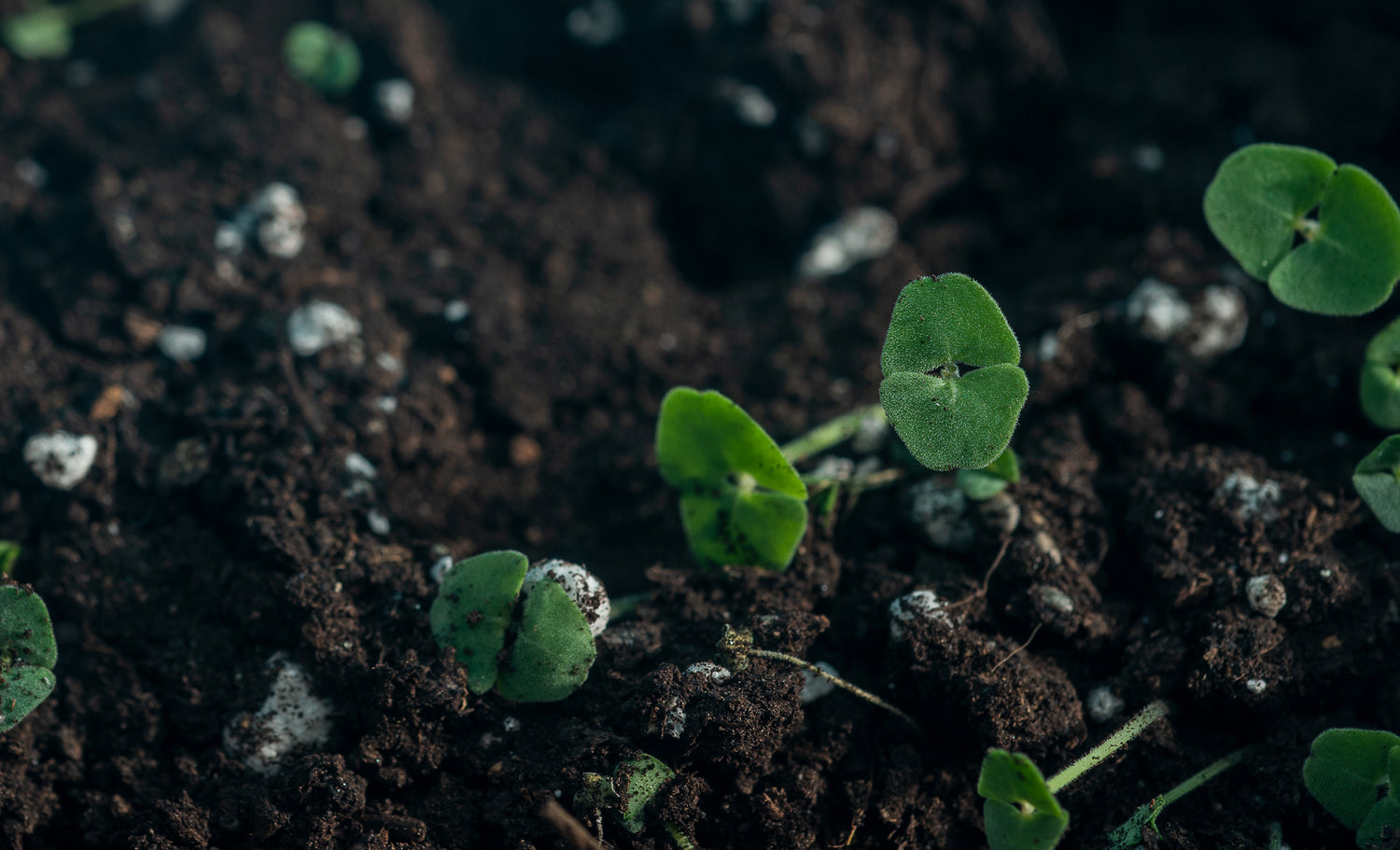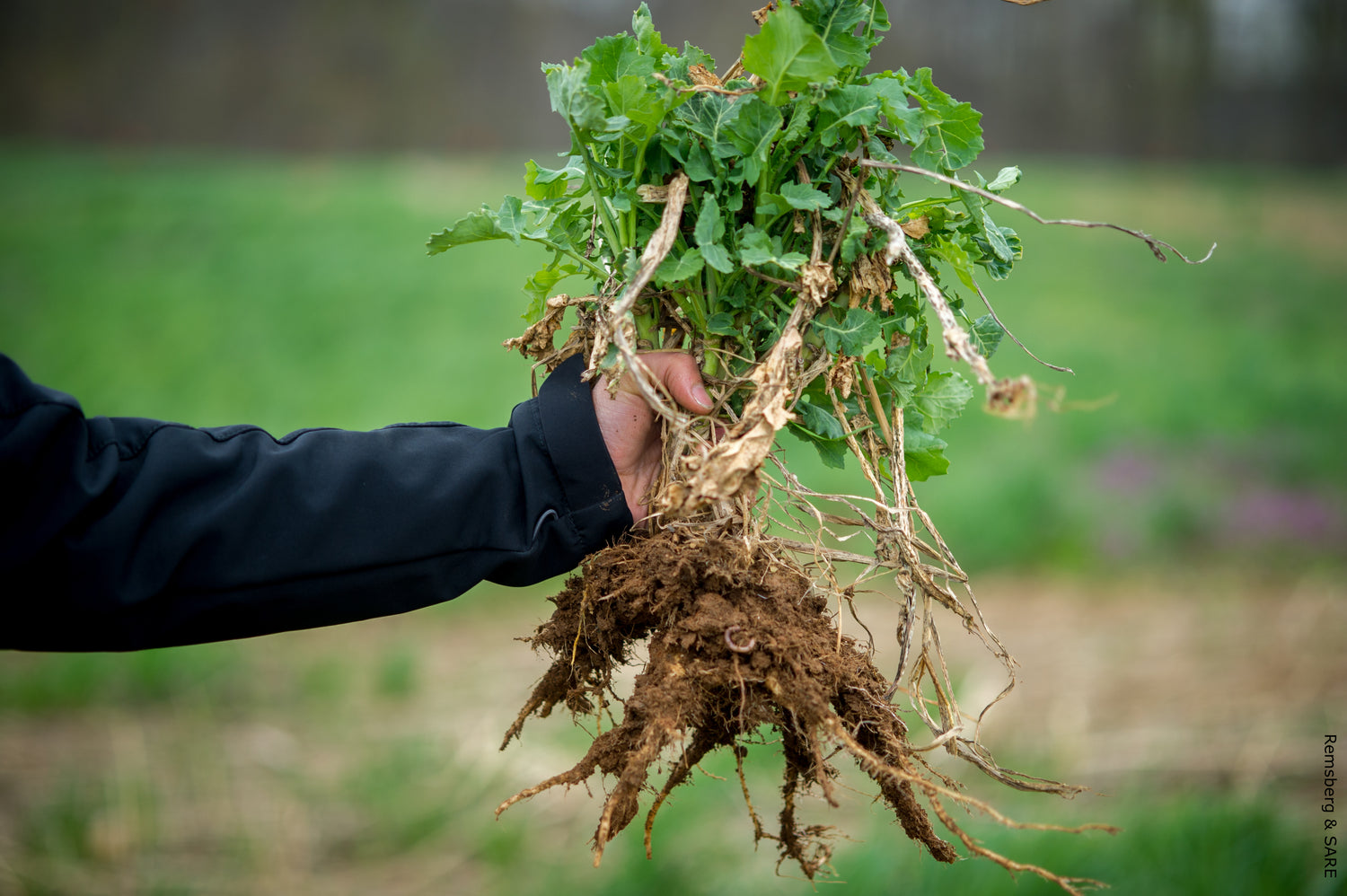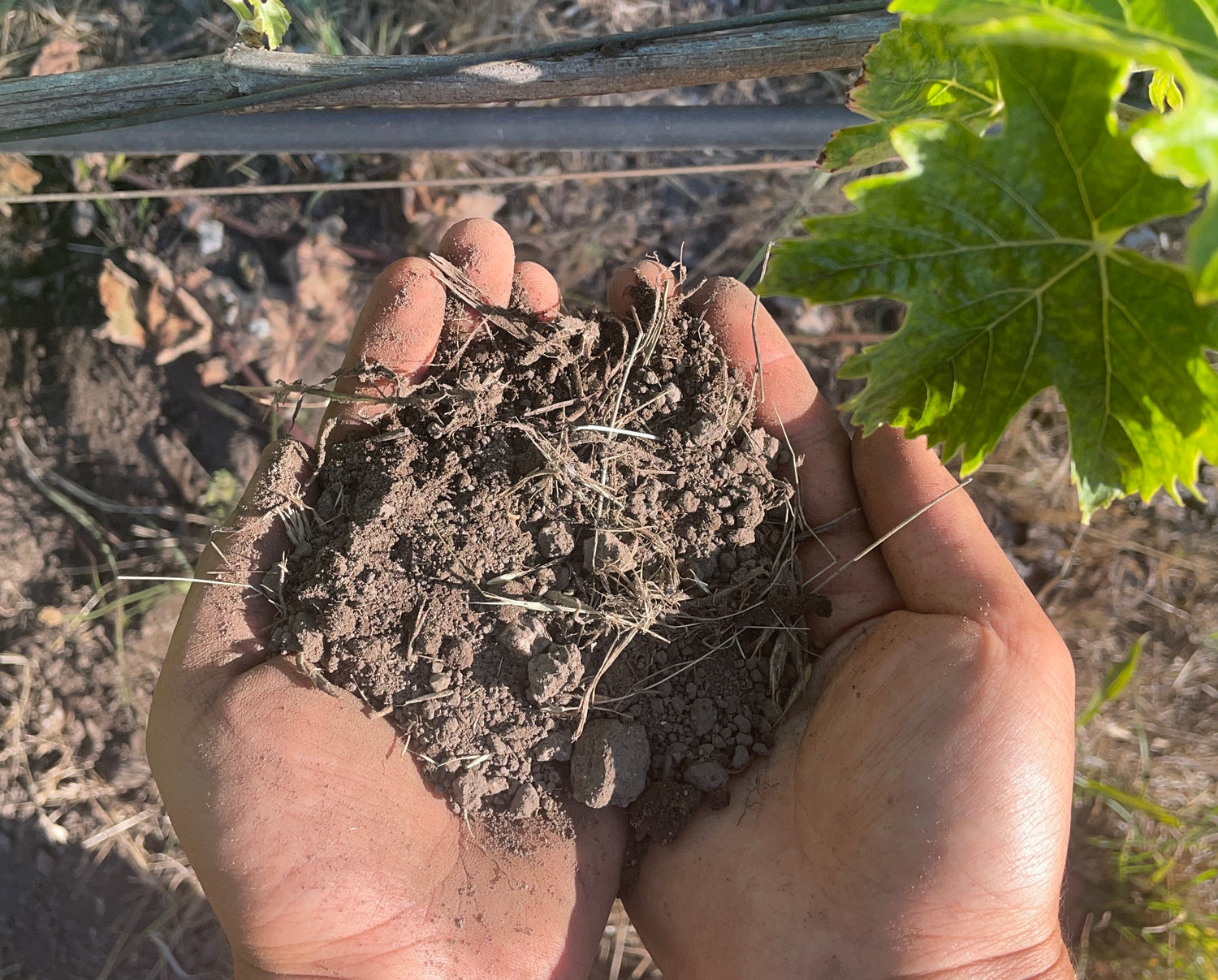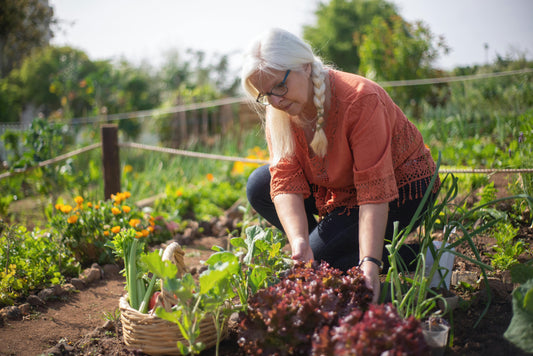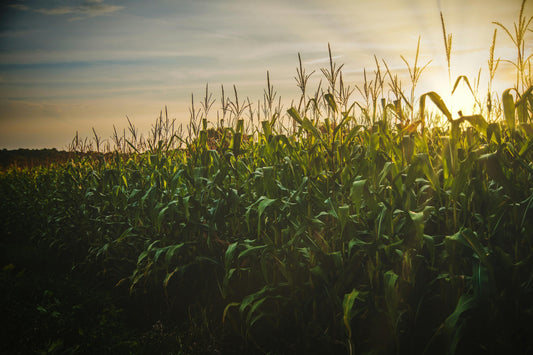Las Vegas, Nevada features six primary soil types shaped by its Mojave Desert environment: alkaline soils, caliche hardpan soils, sandy desert soils, desert wash soils, urban modified soils, and engineered xeriscape soils, each requiring specific management for successful desert gardening and water conservation.
Las Vegas Nevada Soil Types: Complete Desert Gardening Guide
Las Vegas sits within the Mojave Desert, creating unique soil conditions shaped by arid climate, minimal rainfall, and extreme temperatures. Understanding these diverse soil types enables successful gardening, landscaping, and sustainable water use in one of America's most challenging growing environments.
Desert Climate and Soil Formation
Las Vegas receives only 4-6 inches of annual rainfall, with summer temperatures frequently exceeding 105°F. This extreme arid climate creates distinctive soil characteristics including high alkalinity, salt accumulation, and limited organic matter development.
The USDA Natural Resources Conservation Service Web Soil Survey documents the soil mapping units throughout Clark County, showing how geological processes including tectonic activity, volcanic deposits, and alluvial fan formation have created diverse soil conditions across the Las Vegas Valley.
University of Nevada Cooperative Extension emphasizes that successful gardening in Las Vegas requires understanding these unique soil conditions and selecting appropriate management strategies for each soil type.
Primary Soil Types in Las Vegas
Alkaline Soils: Desert Dominants
Alkaline soils represent the most widespread soil type throughout the Las Vegas Valley, characterized by pH levels ranging from 8.0-9.0. These soils formed from weathered limestone, volcanic ash, and mineral deposits under arid conditions with minimal leaching.
Characteristics: High pH levels, elevated salt content, limited organic matter, poor nutrient availability for many plants, especially iron and phosphorus deficiencies.
Management Strategies: Apply sulfur or organic compost to gradually lower pH levels. Select plants specifically adapted to alkaline conditions including desert marigold, brittlebush, and other native species. Focus on improving soil structure through organic matter additions rather than attempting major pH modifications.
Caliche Soils: Hardpan Challenges
Caliche soils feature hard, cement-like layers of calcium carbonate that form beneath the surface, typically at depths of 1-4 feet. These impermeable layers create significant challenges for water infiltration and root penetration.
Characteristics: Impermeable calcium carbonate layers, restricted drainage, limited rooting depth, difficulty for plant establishment and water penetration.
Management Strategies: Mechanical breaking of caliche layers during construction or major landscaping projects. Apply gypsum to help soften hardpan over time. Consider raised bed gardening to provide adequate soil depth above caliche layers.
Sandy Desert Soils
Sandy soils occur throughout desert areas surrounding Las Vegas, characterized by coarse texture, rapid drainage, and low nutrient retention capacity. These soils support native desert vegetation but present challenges for conventional gardening.
Characteristics: Excellent drainage, low water retention, minimal nutrient availability, susceptible to wind erosion, suitable for drought-adapted plants.
Management Strategies: Apply organic mulch to increase water retention and reduce evaporation. Use drip irrigation for efficient water delivery. Add compost to improve nutrient availability while maintaining good drainage characteristics.
Desert Wash Soils
Desert wash soils occur in natural drainage channels and areas subject to occasional flooding during rare but intense desert storms. These soils consist of mixed sand, silt, and gravel deposits.
Characteristics: Variable texture from mixed deposits, subject to erosion during flash floods, higher moisture retention in protected areas, supporting specialized plant communities.
Management Strategies: Stabilize with native vegetation adapted to wash conditions. Avoid intensive development in active wash areas. Use appropriate plants like desert willow and palo verde that tolerate occasional flooding and drought.
Urban Modified Soils
Urban soils throughout developed areas of Las Vegas have been significantly altered by construction activities, often featuring compacted surfaces, imported fill materials, and potential contamination from urban activities.
Characteristics: Highly variable composition, frequent compaction, potential contamination, altered drainage patterns, often lacking natural soil structure and biology.
Management Strategies: Test for contamination before establishing food gardens. Improve compacted areas through soil amendments and avoid working soil when wet. Consider raised bed systems with imported soil for intensive gardening applications.
Engineered Xeriscape Soils
Xeriscape soils represent engineered soil systems designed specifically for water-efficient landscaping in Las Vegas's arid environment. These soils combine appropriate drainage with adequate water retention for drought-tolerant plants.
Characteristics: Balanced drainage and water retention, amended with organic matter, designed for specific plant communities, optimized for water conservation.
Management Strategies: Maintain organic matter levels through periodic compost additions. Monitor soil structure and drainage to ensure continued performance. Select plants appropriate for designed water and nutrient levels.
Soil Testing and Analysis
Professional soil testing provides essential information for managing Las Vegas's challenging soil conditions. Key parameters include pH levels, salinity measurements, nutrient availability, and organic matter content.
Essential Testing Parameters
pH Testing: Critical for determining plant selection and amendment needs. Most Las Vegas soils range from 8.0-9.0, requiring alkaline-adapted plants or soil modifications.
Salinity Assessment: High salt levels can restrict plant growth and require leaching or salt-tolerant plant selection for successful landscaping.
Nutrient Analysis: Desert soils typically show low levels of nitrogen and organic matter, with potential deficiencies in iron and other micronutrients due to alkaline conditions.
Professional Testing Services
University of Nevada Cooperative Extension Clark County provides soil testing guidance and recommendations specifically adapted to Nevada's desert conditions and plant requirements.
Water-Efficient Soil Management
Water conservation represents a critical aspect of soil management in Las Vegas, where water resources remain limited and expensive. Effective strategies focus on improving soil water retention while selecting appropriate drought-tolerant plants.
Organic Matter Enhancement
Adding organic matter improves water retention, soil structure, and nutrient availability across all Las Vegas soil types. Compost applications work particularly well in sandy soils, while mulching reduces evaporation and moderates soil temperatures.
Xeriscaping Principles
Xeriscaping combines appropriate plant selection with efficient irrigation and soil management to create attractive, low-water landscapes suited to desert conditions. This approach emphasizes native and adapted plants that thrive in local soil conditions.
Efficient Irrigation Systems
Drip irrigation and micro-spray systems deliver water efficiently to plant root zones while minimizing waste through evaporation and runoff. These systems work particularly well with Las Vegas's sandy and engineered xeriscape soils.
Plant Selection for Las Vegas Soils
Successful gardening in Las Vegas requires selecting plants adapted to alkaline soils, limited water availability, and extreme temperature variations throughout the year.
Native Desert Plants
Native species like creosote bush, desert marigold, brittlebush, and various cacti and succulents have evolved specifically for Las Vegas soil and climate conditions. These plants require minimal soil amendments and water once established.
Adapted Non-Native Species
Carefully selected non-native plants including Mediterranean species, Australian natives, and other arid-climate plants can thrive in Las Vegas soils with appropriate care and soil management.
Soil-Specific Plant Recommendations
Alkaline Soils: Desert marigold, ghost plant, desert willow, and other alkaline-tolerant species that don't require soil pH modification.
Sandy Soils: Barrel cactus, palo verde, desert broom, and other plants adapted to excellent drainage and low nutrient conditions.
Engineered Soils: Agave species, ornamental grasses, and designed plant communities selected for specific soil and water conditions.
Conservation and Sustainability
Sustainable soil management in Las Vegas focuses on working with natural desert conditions rather than attempting to replicate non-desert growing environments. This approach conserves water, reduces maintenance requirements, and supports local ecosystems.
Soil Conservation Practices
Prevent soil erosion through appropriate vegetation establishment, minimize soil disturbance during development, and protect existing desert soils that support native plant communities.
Water Resource Protection
Implement efficient irrigation systems, select drought-tolerant plants, and manage soil to maximize water retention and minimize runoff during occasional desert storms.
Professional Resources and Support
University of Nevada Cooperative Extension Clark County provides research-based information, educational programs, and technical assistance for desert gardening and soil management in Las Vegas.
The Master Gardeners of Clark County program offers local expertise and support for gardeners dealing with challenging desert soil conditions.
Local garden centers throughout Las Vegas provide soil amendments, desert-adapted plants, and specialized products for managing alkaline and desert soils effectively.
Frequently Asked Questions
What are the main soil types in Las Vegas?
Las Vegas has six primary soil types: alkaline soils (most common with high pH), caliche hardpan soils with impermeable layers, sandy desert soils with excellent drainage, desert wash soils in drainage areas, urban modified soils in developed areas, and engineered xeriscape soils designed for water efficiency. Each requires specific management approaches.
How do I manage alkaline soils in Las Vegas?
Alkaline soils with pH 8.0-9.0 require sulfur amendments or organic compost to gradually lower pH and improve nutrient availability. Focus on selecting plants specifically adapted to alkaline conditions rather than attempting major soil chemistry changes. Native desert plants often thrive in these conditions.
What is caliche and how does it affect gardening?
Caliche is a hard, cement-like layer of calcium carbonate that forms beneath the soil surface, restricting water infiltration and root penetration. It requires mechanical breaking during construction or chemical treatment with gypsum over time. Raised beds provide an alternative for gardening above caliche layers.
What plants work best in Las Vegas desert soils?
Native and adapted drought-tolerant plants work best, including desert marigold, creosote bush, palo verde, various agave species, and other plants evolved for alkaline, low-nutrient desert conditions. These plants require minimal soil amendments and water once established.
How can I improve sandy desert soils?
Sandy soils benefit from organic mulch applications to increase water retention and reduce evaporation, compost additions to improve nutrient availability, and drip irrigation systems for efficient water delivery. Avoid over-watering, which can leach nutrients from these fast-draining soils.
Should I test my soil before starting a garden in Las Vegas?
Yes, soil testing is essential in Las Vegas to determine pH levels, salinity, nutrient availability, and potential contamination in urban areas. This information guides plant selection, amendment applications, and irrigation strategies for successful desert gardening.
Sources
- USDA Natural Resources Conservation Service. Web Soil Survey. https://websoilsurvey.nrcs.usda.gov/app/
- University of Nevada Cooperative Extension. Nevada's Soils - Worth the Toil. https://extension.unr.edu/publication.aspx?PubID=3066
- University of Nevada Cooperative Extension Clark County. Programs and Services. https://extension.unr.edu/county-programs.aspx?CountyID=3
- University of Nevada Cooperative Extension. Clark County Office. https://extension.unr.edu/clark-main.aspx/
- Master Gardeners of Clark County. Extension Programs. https://extension.unr.edu/master-gardeners/clark.aspx
- NRCS Nevada. Conservation Programs. https://www.nrcs.usda.gov/conservation-basics/conservation-by-state/nevada







